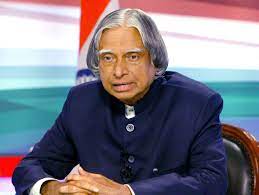James Joyce Biography:
James Augustine Aloysius Joyce, born on February 2nd, 1882, in Dublin, Ireland, became a towering figure in 20th-century literature, revolutionizing narrative form and pushing the boundaries of language. His groundbreaking works, infused with his own Irish heritage and personal experiences, captivated and challenged readers, propelling him to lasting international acclaim.
James Joyce Nationality & Age
- Nationality: Irish
- Born: February 2nd, 1882
- Died: January 13th, 1941
- Age: 58 years
James Joyce Education and Schooling
- Early Education: Received Catholic schooling at Clongowes Wood College and Belvedere College, later questioning his faith.
- University: University College Dublin, studying languages and literature, but leaving without a degree in 1902.
- Lifelong Learning: Self-taught in various languages and immersed himself in European literature, philosophy, and history.
James Joyce Relationship and Personal Life:
- Partner: Nora Barnacle, met in 1904 and lived together throughout his life, marrying in 1931.
- Children: Son Giorgio (1905) and daughter Lucia (1907), who faced mental health challenges, adding complexity to Joyce’s life.
- Financial Struggles: Despite literary success, Joyce often faced financial hardships, relying on patrons and friends.
James Joyce Career Beginnings:
- Early Writings: Began crafting poems and short stories in his youth, showcasing early signs of his unique style.
- Exile and Paris: Left Ireland in 1902, living in various European cities and establishing himself as a writer.
- Dubliners: First published collection of stories (1905), depicting the lives of ordinary Dubliners with realism and subtle symbolism.
- A Portrait of the Artist as a Young Man: Semi-autobiographical novel (1916) tracing the intellectual and artistic development of a young protagonist.
James Joyce Net Worth in 2024
- Establishing a precise net worth for James Joyce in today’s context is challenging due to historical income variations, currency fluctuations, and asset types.
- Based on estimations, Joyce’s wealth in 2024 might have been equivalent to approximately $1-5 million, considering factors like book sales, teaching income, and patron support.
James Joyce Career and Contributions:
- Ulysses: Monumental masterpiece published in 1922, depicting a single day in Dublin through the protagonist Leopold Bloom’s stream of consciousness, revolutionizing narrative technique and language use.
- Finnegans Wake: Experimental and dreamlike novel (1939), pushing language boundaries further but facing mixed reactions for its complexity.
- Critical Essays and Short Stories: Contributed essays and stories to various publications, providing insights into his artistic theories and literary approach.
- Impact: Joyce’s legacy lies in his pioneering methods, influencing countless writers and transforming the literary landscape.
James Joyce Achievements and Awards:
- Literary Recognition: Widely recognized as a seminal figure in modernism, earning acclaim from leading writers and critics.
- International Influence: His works translated into numerous languages, expanding his readership and influence globally.
- Enduring Legacy: Scholarly studies, adaptations, and critical discussions continue, reaffirming his lasting impact on literature.
James Joyce Social Media Accounts:
- Note: Unfortunately, social media did not exist during James Joyce’s lifetime.
- Legacy-Preserving Accounts: Online resources dedicated to Joyce’s life and works, such as the James Joyce Centre in Dublin, provide valuable information and engagement for audiences.
James Joyce Conclusion and Legacy:
James Joyce’s life and literary contributions continue to intrigue and inspire readers decades after his death. His innovative use of language, stream-of-consciousness techniques, and exploration of universal themes cemented his place as a revolutionary figure in modern literature. His works remain powerful testaments to human experience, prompting profound thought and challenging literary conventions even today.


